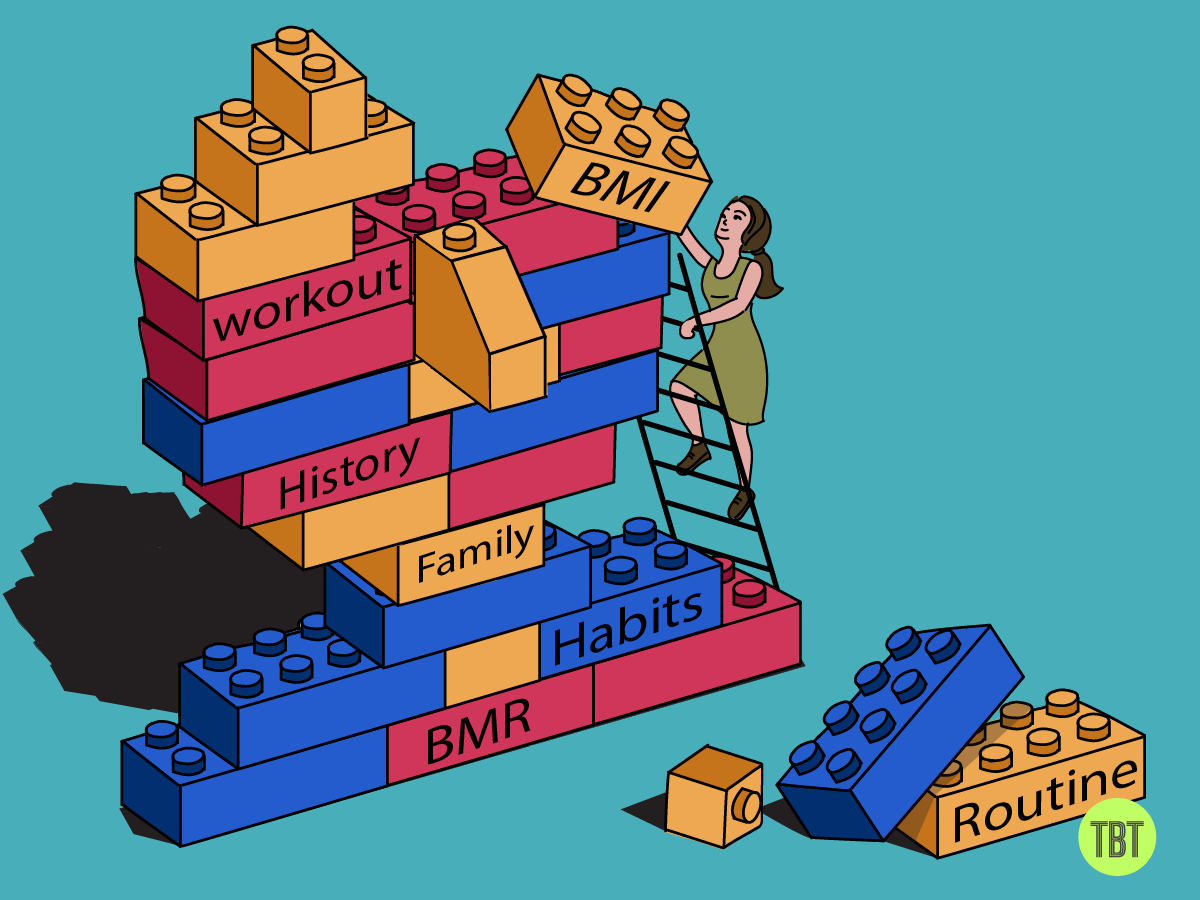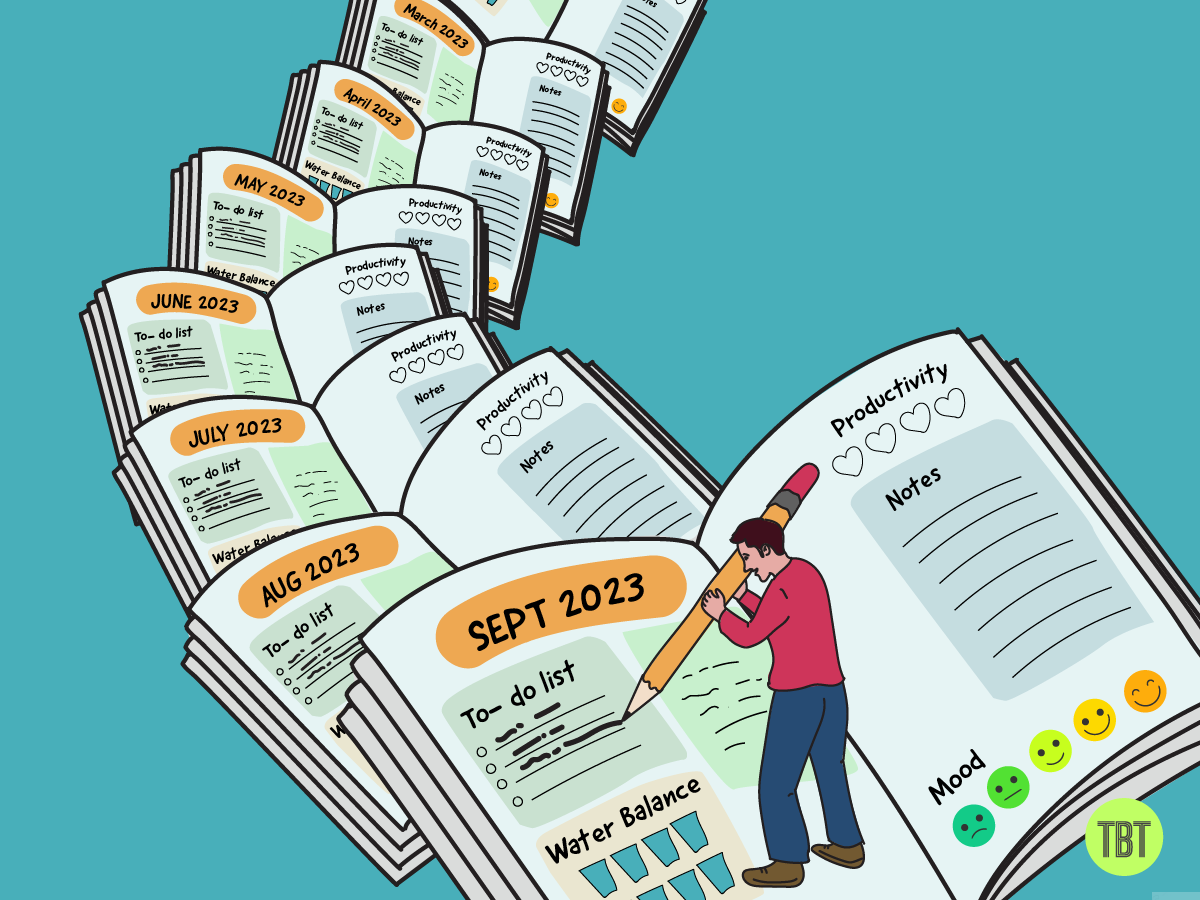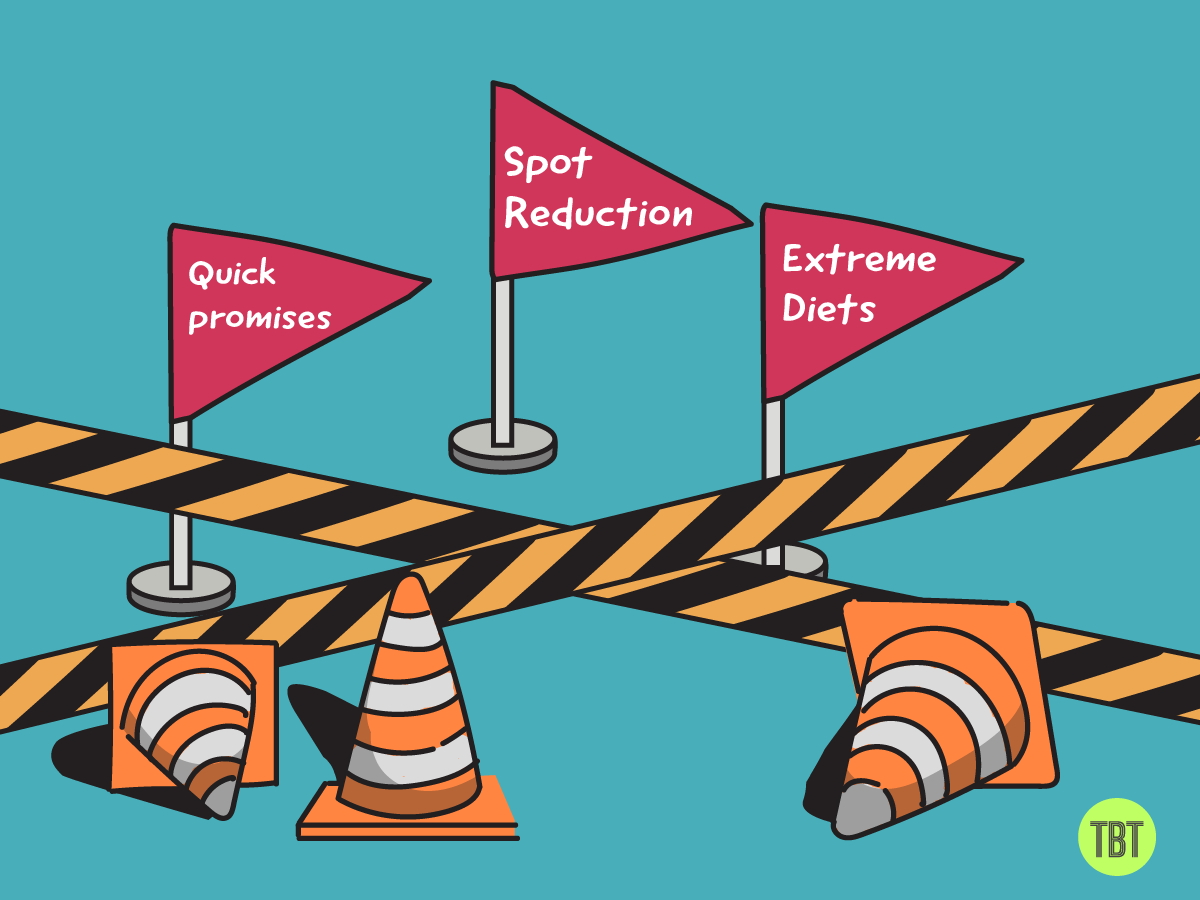How to pick a good dietitian
The most trustworthy source of food and
fitness journalism in the country.
Editor’s Note: Back in the day, when I was 20 kilograms heavier and had no understanding of nutritional basics, I consulted a dietitian who one day asked me to eat three bananas and drink three glasses of milk for the entire day. I was left miserable, and I stopped following her quick-weight-loss diet plan. And that left a negative impression of dietitians. It took time to realise that not all are alike. Working with a good dietitian can actually be transformative. It’s about having the right expectations and knowing how to identify a good one. That’s the piece today: insights from a dietitian on nutritional coaching.
Ritika Shah is our writer today, who has been guiding people on their health and fitness journeys for the last five years. I am excited to have her write for us because she is one of you—a Truth Be Told reader—and I got the chance to speak with her when I had sought feedback from you all a few months ago. I repeatedly say TBT is a community-centric publication, and I feel great when our readers show interest in contributing. (Which means: yes, feel free to email me story ideas!)
-Samarth Bansal
I have guided hundreds through their fitness journey. Some want to shed weight before their wedding, some are struggling to see results from their runs, some just want to improve their health, and all share a common block: where to start?
Many come to me after unsatisfactory experiences with dietitians who promise quick, extreme weight loss. News flash: that’s not how it works. Let me share how it does work.
The ten points that follow are based on the method I use to coach my clients and recurring patterns I’ve observed.
This information might not be as essential for those who already possess a comprehensive understanding of nutrition. For everyone else, however, expert guidance can help — provided you find a competent dietitian and arm yourself with the right mindset for long-term success.
1. Initial consultation
The first chat covers a broad range of health concerns. It ranges from weight management to specific medical conditions like high or low blood pressure, diabetes, and thyroid issues, or even athletic goals such as improving gym performance.
We delve into your dietary habits, allergies or restrictions, personal and family medical history, and level of daily physical activity. This background information sets the context, so honesty is crucial.
2. Data-driven approach
After the initial chat, data collection becomes the next focus. We gather a range of metrics. These include body composition statistics like weight, body fat percentage, and muscle mass, as well as basal metrics such as BMI (Body Mass Index) and BMR (Basal Metabolic Rate).
For a more holistic understanding, we also consider self-assessment metrics. You’ll rate your energy levels and confidence on a scale of 1 to 10 and provide physical measurements like chest, waist, and hip sizes. Evaluations of your daily water intake and optional blood tests offer additional layers of insight.
This data serves as our baseline—the initial snapshot—periodically revisited to track your progress.

3. Crafting your personalised plan
Armed with a clear picture of your current health status, dietary habits, and vital metrics, we move to the next phase — designing a diet plan tailored just for you.
It’s important to note that this plan is not set in stone; consider it more as a guide than an instruction manual. The goal is to work collaboratively, adapting the plan as we go while sticking to fundamental nutritional principles.
Struggling to find a specific ingredient? Alternatives are always available.
Unavoidable dinner out? Don’t sweat! Make smart choices in both portion size and food selection.
Dealing with relentless sweet cravings? Reach for a date (the fruit, obviously!).
Slip up eating healthy often while out for dinner? Send this to your date 😉
4. Updating your dietitian
I encourage my clients to share regular updates to keep tabs on their progress.
A quick snap of what’s on your plate can be easily sent via WhatsApp. I’m also interested in your daily physical activity—did you hit your goals? How you’re generally feeling is important to me, as is your hydration status—yes, we’re talking about water.
5. The power of journaling
Keeping a journal—recording your thoughts, feelings, experiences, and dietary habits—can be a transformative tool. Think of it as a time capsule that captures your starting point and tracks your progress over time.
It’s also an accountability measure; when you jot down all your meals and activities, you’ll think twice about that string of cheat meals disrupting your goals.
Then there’s the psychological benefit of the positive feedback loop: small victories provide the spark of renewed energy to keep you moving forward, even on days when you’d rather not.
If the idea of journaling feels overwhelming, it’s fine to skip it. The choice is yours.

6. How to choose a dietitian
Word of mouth often provides the most reliable recommendations. If someone you know speaks highly of their dietitian, consider asking them specific questions such as:
“Did the dietitian take the time to understand your needs?”
“Was the diet plan easily incorporated into your daily life?”
“Did the habits you adopted sustain even after the plan concluded?”
If it’s a yes for all three, talk to them. If personal recommendations aren’t available, you can find qualified dietitians on the internet and social media with proven track records and positive reviews.
But don’t trust blindly: reach out for an initial enquiry call. Ask questions. Feel free to ask about their educational qualifications. Pose similar questions (as listed above) to understand their approach. Briefly outline your health objectives and inquire if they’ve managed similar cases before.
Some might suggest using measuring cups for meal prep or propose plans featuring complex ingredients. If that aligns with your schedule and motivation — excellent! If not, think about what will be sustainable for you in the long haul.
The key is to find a dietitian whose approach meshes with your lifestyle and long-term ambitions.
As we help you eat healthier, remember that word of mouth will help us too!🤪
7. Beware of dietitian red flags
Keep an eye out for certain indicators that should give you pause before you continue with a specific dietitian.
a) Quick promises: If they guarantee dramatic weight loss in a short time, it’s time to look elsewhere. Even if they share proof, ignore. Weight loss is a complex, individual journey. (See point nine for more.)
b) Spot reduction: Anyone suggesting targeted fat loss from a specific body area is peddling a myth. Spot reduction has no scientific basis.
c) Extreme diets: Avoid dietitians who recommend extreme dietary regimens that place undue stress on your mind and body.
These red flags indicate that the dietitian may either lack the necessary nuanced understanding for effective, safe nutrition guidance, or may not have your best interests at heart.

8. Navigating setbacks
Falling short of your goals isn’t failure; it’s just another step in your journey towards a healthier lifestyle. Those metrics we keep track of are there to show you the bigger picture, not to pass judgement. Sometimes the scales might not move, but other numbers do — like your fat percentage or muscle mass. Those wins count too.
Here are some common ones:
Occasional slip-ups: We’re not robots programmed to avoid temptation. Sometimes we’re drawn to that pani puri stall or the irresistible jalebi. That’s okay; we’re human. What matters is acknowledging these detours and recalibrating. There’s no need to hide anything from your dietitian.
Unintentional mistakes: It’s easy to slip up without realising it. For instance, one client saw her blood sugar spike and didn’t realise it was due to the mango pulp she’d had with her meal. Certain fruits, like mangoes, grapes, and bananas, are best avoided with main meals. It’s all part of the learning process.
Managing expectations: I often hear statements like, “I’m getting married in two months and I need to lose weight fast.” While I understand where the urgency is coming from, it’s essential to set realistic and sustainable goals. Drastic calorie deficits can be counterproductive, weakening you or even making you ill.
Remember: your health journey is a marathon, not a sprint. Quick fixes might give you momentary joy, but we’re in this for the long run. It’s important for the dietitian to reinforce this idea.
9. Don’t fall for quick weight loss illusions
Many people experience a rapid drop in weight when they first adopt a healthier diet and maintain proper hydration.
Here is why this happens. When your diet consists largely of salty or fried foods and you’re not drinking enough water, your body goes into ‘storage mode,’ retaining water for future use. This is known as water retention.
As you clean up your diet and stay properly hydrated, your body sheds this retained water, giving the illusion of quick weight loss.
The danger lies in the thrill generated by these immediate results. You might think, “Fantastic, I’ll lose another 10 kg next month,” only to find your progress plateaus. This emotional rollercoaster can dampen your enthusiasm for your diet plan, and even for your dietitian.
That’s why it’s crucial for dietitians to clarify this phenomenon and set out a realistic plan for progress. Sustainable results, like fat loss and muscle gain, come through patience and consistency, not overnight magic.
10. A final word of caution
It’s essential to remember that while a dietitian can provide invaluable advice for improving your lifestyle, their guidance is complementary to medical care, not a substitute for it. Always engage with your healthcare provider and avoid making changes to medication dosages without proper consultation. For a comprehensive approach to wellness, consider working with a doctor who is receptive to lifestyle modifications as part of an integrated healthcare plan.
🍽 One healthy meal followed by five unhealthy ones? Help a loved one break that habit!
